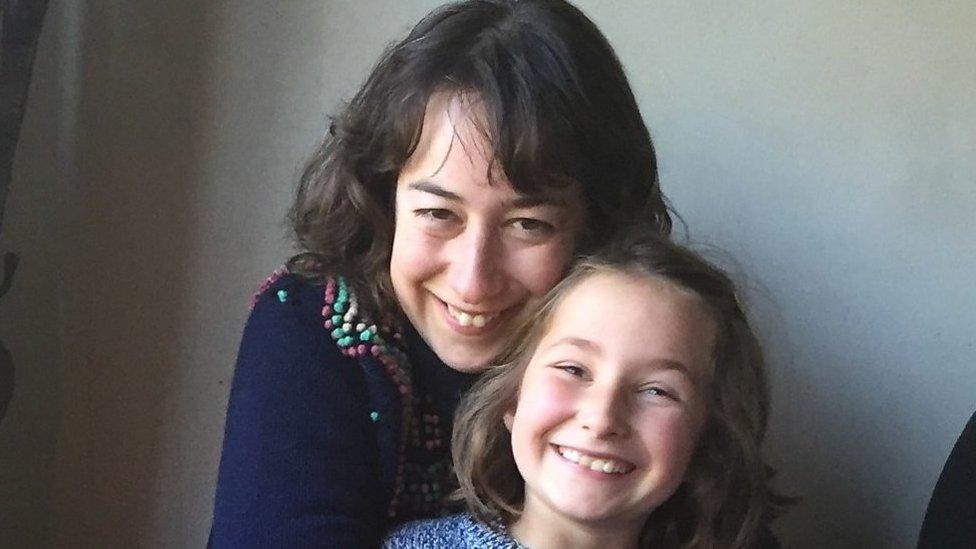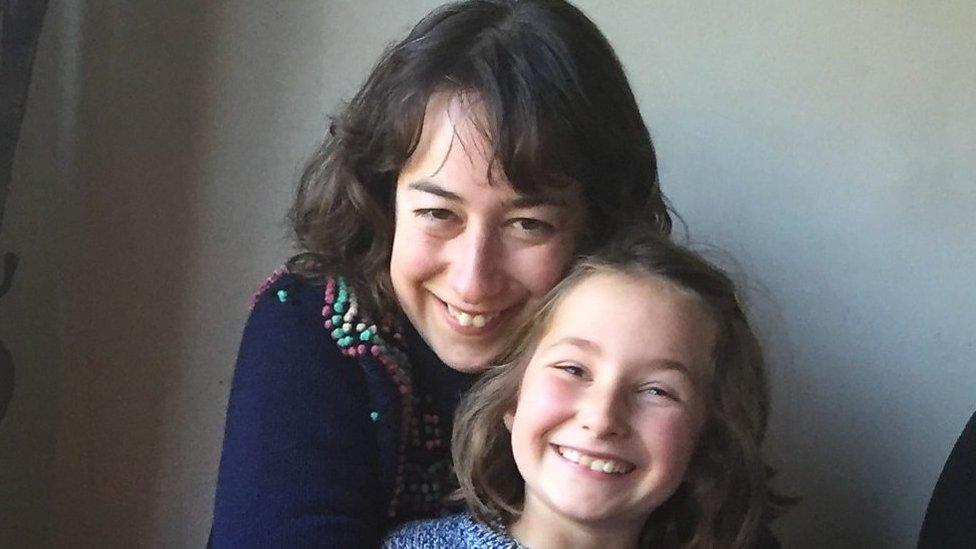NHS ombudsman calls for Martha's rule to give power to patients
- Published

Top boss of NHS complaints in England has told the BBC he wants Martha's rule, external to be introduced to give patients the power to get an automatic second medical opinion about hospital care, when they think things are going wrong.
Rob Behrens said he had been moved by the plea of Merope Mills, who shared the story of her daughter's death.
Martha was 13 when she died from sepsis.
An inquest, external said she could have survived had her care been better.
Merope Mills wants hospitals around the country to bring in Martha's rule, which would give parents, carers and patients the right to call for an urgent second clinical opinion from other experts at the same hospital, if they have concerns about their current care.
It is something that Parliamentary and Health Service Ombudsman Rob Behrens fully supports.
He told BBC Radio 4's Today programme: "Along with many others, I was moved and in great admiration for what Merope has said and done and I give unambiguous support.
"Unfortunately, as tragic as this case is, it's not the first and there have been many cases where patients have been failed by their doctors because they haven't been listened to."
Martha's story

Martha Mills was enjoying her summer holidays before she had an accident
Martha was on a family holiday in Wales in 2021, cycling on a flat and "family friendly" path, when she slipped on to the handle bars of her bike, with her abdomen taking the full brunt of the fall.
The force pushed one of her internal organs, her pancreas, against her spine, causing significant damage.
She later developed a complication called sepsis - when the body's response to an infection is overwhelming and ends up injuring its own tissues and organs.
Watch: Martha Mills' mother, Merope, shares her struggle with her loss
Earlier this week, Martha's mother, Merope, told Radio 4's Today programme that her family were not listened to by senior doctors on several occasions during her hospital care and were "not given the full picture" about Martha's deteriorating condition - leaving them unable to speak up for better treatment.
Merope recalled: "She started bleeding out of the tube in her arm... and one in her abdomen as well.
"It was a lot of blood as well, you know, soaking her sheets, and at night, we had to keep changing them.
"The doctors just told us it was a normal side-effect of the infection, that her clotting abilities were slightly off."
But Merope says some experts have advised her that this is the point her daughter should have been moved to intensive care - as the bleeding was probably a sign of very disordered clotting and severe sepsis taking hold.
The hospital that looked after Martha has admitted mistakes were made and the trust said in a statement that it "remains deeply sorry that we failed Martha when she needed us most".
Mr Behrens said he was powerless to look into the circumstances surrounding Martha's death - unless the family request him to.
"In law, unfortunately, unlike all my European counterparts, I have to wait until someone brings an issue, a complaint to me. I don't have the power to go out and look at issues unless people complain about them.
"I think I am virtually the only ombudsman in Europe who doesn't have that power.
"The key point is, the people who most need our help as ombudsman are the people least likely to complain."
How to make a complaint
The NHS Constitution, external sets out your rights as a patient, and explains the commitments the NHS has made to providing you with a high-quality service.
Organisations providing NHS care must take account of the NHS Constitution when treating you, so you may find it helpful to refer to it if you are thinking about making a complaint.
If, after raising your complaint with the NHS team in charge of your care, you are not happy with how things are dealt with, you can contact the Parliamentary and Health Service Ombudsman, external which makes final decisions on unresolved complaints about the NHS in England
Health Secretary Steve Barclay has asked government and the NHS to explore the idea of Martha's rule.
Shadow health secretary Wes Streeting said it is something Labour would support and introduce: "I'm sure I wasn't the only Today programme listener moved to tears by the heartbreaking testimony about what Martha's family have been through as a result of a tragedy that might well have been avoided if the family had been listened to, and if they had known their rights."
Some similar alert systems exist already around the world, including one at the UK's Royal Berkshire Hospital.
Here people who are worried a patient is deteriorating, but that the healthcare team is not recognising their concerns, can ring a critical care hotline for immediate help.
Alison Schofield is lead nurse for the Call 4 Concern scheme: "We are a team of nurses that specialise in assessing and treating critically ill patients.
"Patients and relatives and their friends can ring us if they are concerned about clinical issues or deterioration and we will come and assess and review that patient."
She said the scheme has worked well for staff and patients, and added her call for Martha's rule: "Get the word out to everyone. Give patients and their relatives the power."
Related topics
- Published4 September 2023

- Published4 September 2023
